VW’s Seven-Passenger Large SUV Siblings
Volkswagen is a latecomer with its three-row Atlas SUV. Designed for the American market, the Atlas lives up to its name–it’s big, which is a good thing if you need to seat up-to seven people. For most, this is something very few of us do on a regular basis. However, if you have a growing family and need the extra storage space for all their (and their friends’) gear, the 2018 Atlas should be on your wish list.
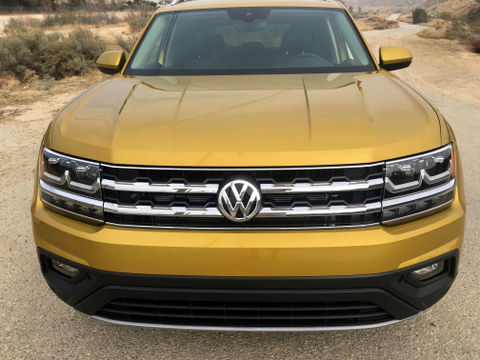
VW designed the Atlas interior to be open and inviting, even for passengers venturing into the third row. You need to be a Cirque du Soleil contortionist to access or comfortably sit in the far back of many seven-passenger SUVs. Not so with the Atlas, as VW has made the access easy with fold-and-slide second row seats, and a third row bench with good thigh support and a comfortable angle for the seat back. Maybe six-footers would not want to spend a few hundred miles back there, but anyone shorter would do just fine. A nice feature is that a child car seat can remain attached to the second row when it slides forward for access to the third row. The Nissan Pathfinder has this same convenience.
The beauty of the Atlas interior is how efficient the space is. Achieved by having near squared-off sides and a tall roof, shoulder room is expansive and leg room is good for even the tallest passengers. If you do not want a second row bench seat, Captain’s Chairs are a $625 option.
Available in five trim levels, you can get into a nicely equipped base 2018 Atlas S for about $31,000. This is a compliment to VW, knowing they have to be aggressive on pricing and content to gain awareness in the crowded large SUV segment. As for discriminating consumers, they will be rewarded with a well-built vehicle that can accommodate the complete family.
2.0L Turbo or 3.6L V6/FWD or 4Motion AWD
Clean Fleet Report had the opportunity to drive two Atlases (Atlasi?)—the Atlas SE with the 2.0-liter turbocharged I4 and front-wheel drive (FWD), and the Atlas SEL Premium with the 3.6L V6 with 4Motion (VW’s term for all-wheel drive). Both models had an eight-speed Tiptronic automatic transmission. Volkswagen’s 4Motion is a permanent all-wheel-drive system engineered to eliminate wheel spin under almost all conditions. It’s also designed to automatically decouple the rear wheels when the driving load and conditions don’t require the additional traction, saving fuel. It also comes with four drive modes: Highway, Off-road, Snow and Custom. So, what are the differences between the two engines and drive systems?
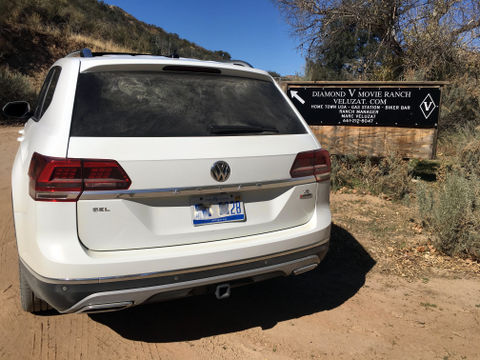
Here are some stats to get started.
- 2.0L Turbocharged I4
- 235 horsepower (hp)
- 258 pounds-feet (lb.-ft.) torque
- 22 mpg city/26 highway/24 combined (EPA)
- 3.6L V6
- 276 hp
- 266 lb.-ft. torque
- 17/23/19
It is clear from these numbers that an Atlas, with either engine, is not winning any fuel economy ribbons. Of course, the big trade-off that places an * next to the fuel economy is being able to transport up-to seven people and their gear. Had it not been for the recent diesel scandal, VW most likely would have offered the Atlas with its 3.0L TDI engine, which would have lifted the fuel economy numbers into the low 30 mpg range. The 18.6 gallon fuel tank means that, at a 25 mpg average, your family road trip could rack up more than 450 miles before refilling the tank.
The choice for performance between the two engines is a toss-up. The V6 accelerates smoothly, pulls strong and will be your primary choice if you plan on doing any towing, as it is rated up to 5,000 pounds. Both engines have Stop/Start technology that, while noticeable when the engine kicked in, it was not jarring or loud. The 2.0L Turbo gave peppy performance with good low-end torque, and a bit better fuel economy.
In what we believe afflicted only the car we were driving, Clean Fleet Report’s 2.0L Turbo suffered from stumbling upon acceleration from a stop. No matter how hard we tried, we were unable to find a pressure on the accelerator pedal that would result in a smooth launch. Was this a combination of the Stop/Start, turbo lag, the differential locking or the transmission searching for a gear? We never could figure it out. But, once off the line the 2.0L turbocharged four cylinder was a joy to drive. The turbo did exactly what turbos do by giving instant power when needed, out performing the V6 in all timed categories. We especially liked how we were able to merge onto Southern California freeway traffic with ease and confidence with both engines.
Driving Experience: On the Road
The 2018 Volkswagen Atlas is balanced nicely and grips the road well. However, the suspension on the 2.0L Turbo FWD was soft, at times suffering from a rolling, sloppy feel. The V6 4Motion did not have this issue, possibly because it weighed-in at 4,502 lbs., while the 2.0L came at 4,222 lbs. (280 lbs. lighter). In both vehicles there was noticeable body roll on hard corners at high speed, but it did not affect confidence because it was easy to predict. Plus taking those corners a bit slower was a good idea anyway.
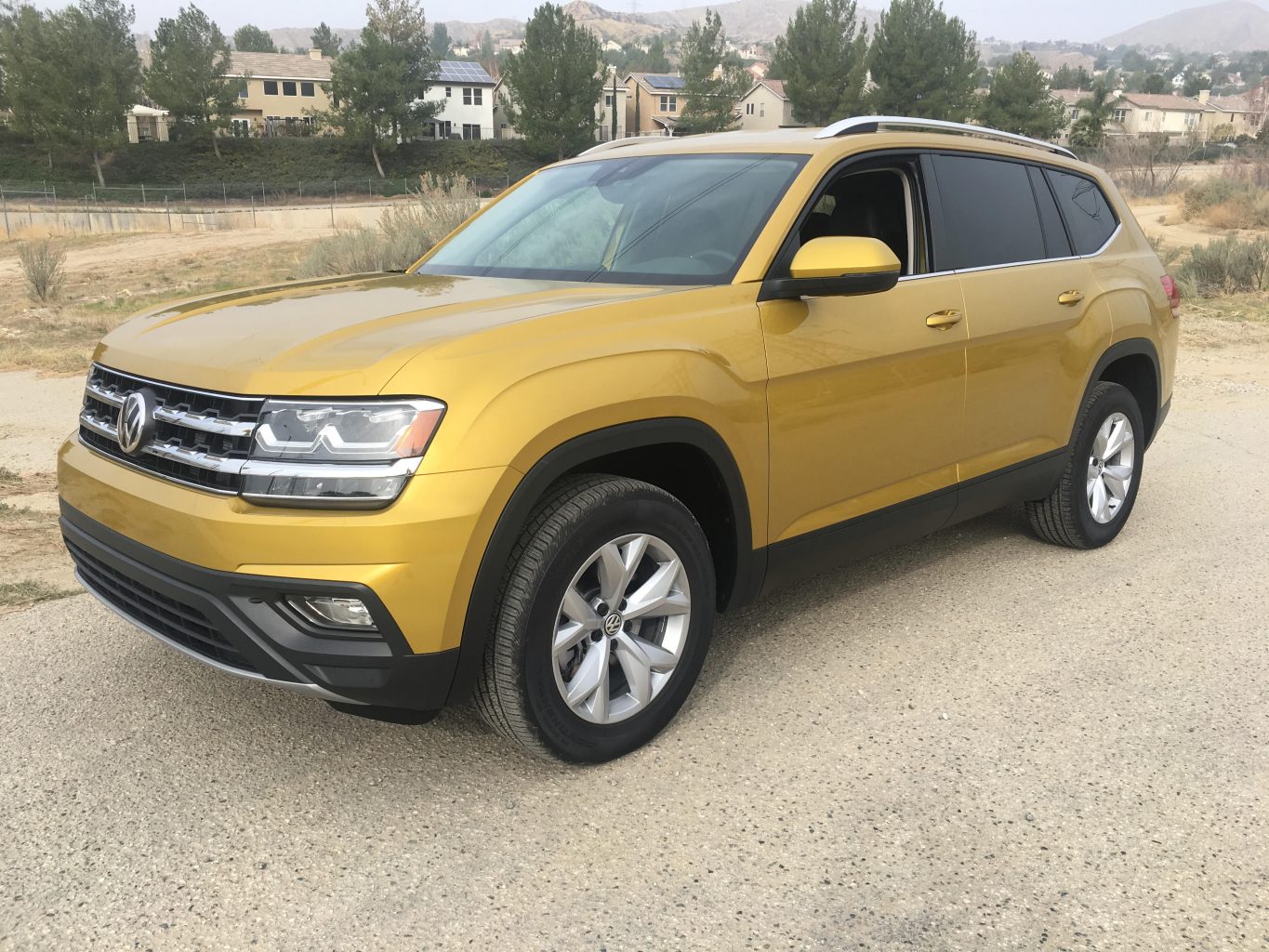
Both FWD and 4Motion Atlas models have identical independent suspensions of front struts, coil springs and an anti-roll bar, while the rear has multi-link with coil springs and telescopic dampers. The 2.0L had 245/60R Continental Cross Contact all-season tires on 18-inch alloy wheels, while the 3.6L had the same tires but on 20-inch alloy wheels.
Driving Experience: Exterior
A couple of years back Volkswagen began standardizing its vehicles on the MQB (Modular Transverse Matrix) architecture. The 2018 Atlas, at 200-inches in length, is easily the largest VW to be adapted to this platform. So how to design a large SUV that did not actually look so large? VW accomplished this nicely with a classic design of pleasing proportions that should hold up for many years. The Atlas is modern with soft, clean lines, but also bold in that it holds a commanding presence on the road.
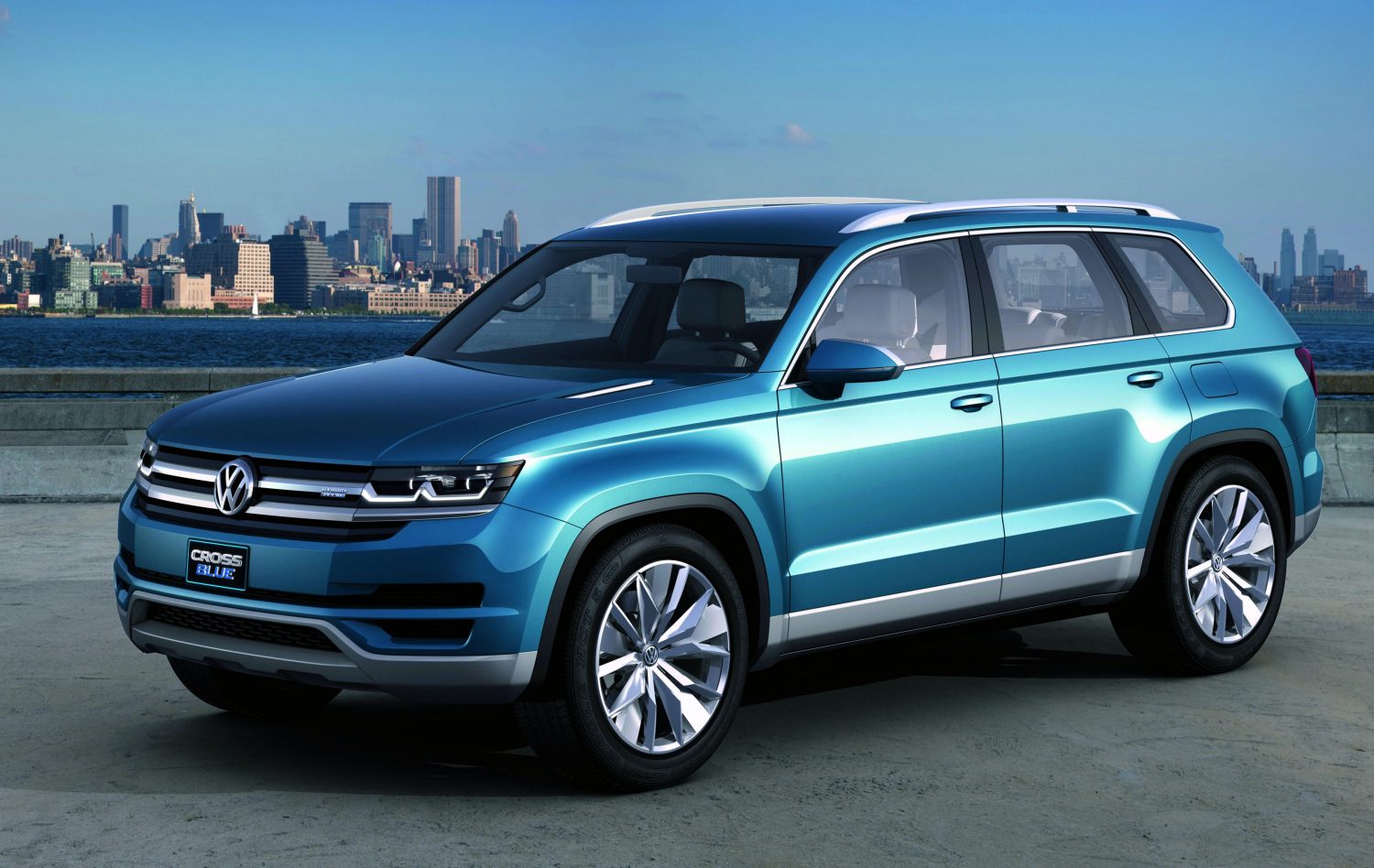
First shown in 2013 as the CrossBlue concept vehicle, Volkswagen retained much of the CrossBlue design by not squaring-off the corners or adding all sorts of scoops and vents. The Atlas is refreshing, clean and simple. The very respectful 0.34 drag coefficient helped the Atlas cut quietly through the wind, even at freeway speeds.
Driving Experience: Interior
The 2018 Atlas has a neat and pleasant interior with a clean fit and finish. Nothing fancy, trendy or quirky. The usual German simplicity, with a good mix of soft and hard plastics, was complimented by tasteful wood-grained and brushed aluminum trim. The white backlighting for the dash gauges added a premium element, which went along with the overall quality materials used throughout the interior.
The center stack features VW’s Car-Net infotainment (information and entertainment) system. Our Atlas SE model had an 8.0-inch color touchscreen for the eight-speaker audio system
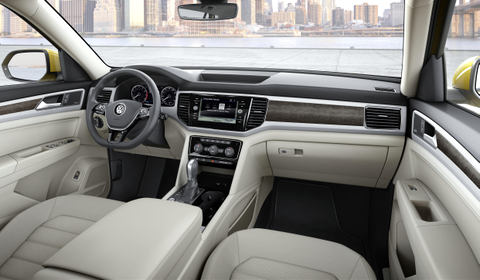
for the AM/FM/HD radio and CD player, with MP3 playback. Also part of the infotainment system is SiriusXM, Bluetooth for telephone and streaming music, and VW’s Media Device Interface (MDI), which includes a SD card and USB slots. Clean Fleet Report’s Atlas SEL Premium had the same screen, but with a Fender audio system and its 12 speakers and subwoofer. Clean Fleet Report is a big fan of knobs. VW makes it easy to operate the radio and the multi-zone climate control system with the turn of a few well placed knobs.
Our Atlas SE had seats covered in VW’s V-Tex Leatherette while the SEL got leather for the front and outward second row seats. Leatherette is a durable fabric technology that is comfortable to the touch and provides good air circulation. Both had heated and power adjustable front seats. There was a good choice of seat settings that, when combined with the height adjustable and telescoping steering column, made it easy to find a comfortable position for the driver. Separating the front seats is a center console offering ample storage and an USB charge-only port. A nice upgrade is the multi-function steering wheel wrapped in leather.
The 60/40 split-folding second row seats were heated on the SEL. Both models had the convenient fold-and-slide second row that made getting to the 50/50 split-folding third row an ease. Storage configurations abound, all depending on how many seats are folded. If you are looking to tote an eight-foot kayak or surfboard, the Atlas can handle it.
Interior conveniences, standard or optional, include remote start, a power tilting and sliding sunroof, remote power lift gate, power windows, keyless access, multi-function steering wheel with audio and telephone controls, power adjustable and manual folding heated exterior mirrors, multiple power ports, front and rear reading lights and carpeted floor mats.
Safety and Convenience
The 2018 Volkswagen Atlas has standard or available safety features such as eight airbags, tire pressure monitoring system and an Intelligent Crash Response System (ICRS). In case of an accident, the ICRS turns off the fuel pump, unlocks the doors and activates the hazard lights. But the real stand-out coming from Volkswagen is its Automatic Post-Collision Braking System, which is pretty self-explanatory. Working in conjunction with the airbag sensors in a collision, the brakes are applied automatically after an accident so your car does not continue moving where it could strike another vehicle or object.
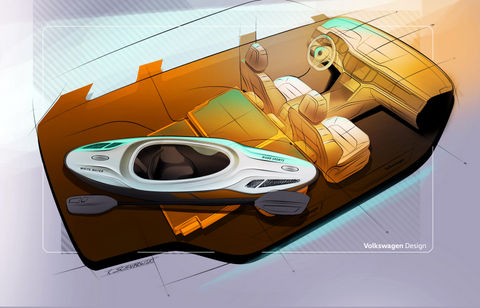
Additional safety features include adaptive cruise control, power-assisted anti-lock brakes, park assist, stability control, overhead view and rear view cameras, blind spot monitor, lane departure warning, rear traffic alert, forward collision warning and autonomous emergency braking. If you have never driven a car with these last two safety features, have your Volkswagen sales representative demonstrate them to you on the highway. Once you have used them, you will feel naked when driving a car that is not similarly equipped.
The 2018 Volkswagen Atlas earned a Top Safety Pick by the Insurance Institute of Highway Safety and a 5 Star Overall rating by the National Highway Traffic Safety Administration. These are the highest ratings by each organization.
Pricing and Warranties
The 2018 Volkswagen Atlas ranges in base price from $30,750 to $48,740. Clean Fleet Report’s Atlas with the 2.0L Turbo and FWD had an MSRP of $33,590, and the 3.6L V6 with 4Motion came in at $48,490. All prices are before any options and the $925 Destination Fee.
The 2018 Volkswagen Atlas comes with these warranties:
- New Vehicle/Powertrain – 72 months/72,000 miles
- Corrosion Perforation – 84 months/100,000 miles
- 24 Hour Roadside Assistance – 36 months/36,000 miles
Observations: 2018 Volkswagen Atlas V6 4Motion and Atlas 2.0L Turbo FWD
Volkswagen is in the same position as all auto manufactures needing to get the attention of consumers to even consider buying their cars, trucks and SUVs. In the case of the 2018 Atlas, the task for VW is even greater as several competing well-known large SUVs are already on the market . So the question looms of why an Atlas should be in your driveway?
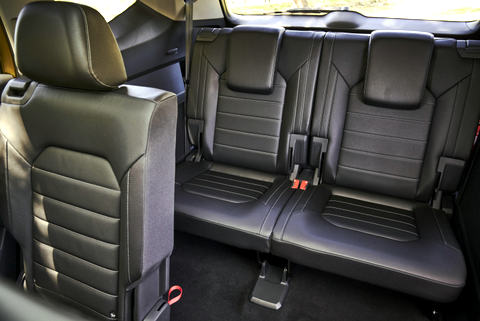
To start, you won’t be disappointed owning an Atlas as the build quality on Volkswagens is second to none. Choosing either engine, front wheel or all-wheel drive, will be based on your lifestyle and where you live. Will you be going off pavement or pulling a trailer? With the Atlas, Volkswagen gives you good options when needing to transport up-to seven people.
The only way you will know is by going to your local Volkswagen dealer and take all three engine and drive models out on the open highway, around town and if necessary for your intended use, off-road. You may feel the front-wheel-drive Atlas suits your commuting and around town needs, while the Atlas 4Motion fits your adventurous lifestyle just a bit better.
Whatever you end up buying, Happy Driving!
Related Stories You Might Enjoy: Atlas & Other VW Road Tests
Road Test: 2018 Volkswagen Atlas V6
Road Test: 2018 Volkswagen Golf Alltrack
Flash Drive: 2017 Volkswagen e-Golf
News: Volkswagen EV Onslaught to Begin in 2020
Road Test: 2017 Volkswagen e-Golf
Road Test: 2017 Volkswagen Golf SportWagen
News: Volkswagen Introduces I.D. Crozz to EV Lineup
News: Volkswagen Microbus to Return as an Electric
Competitive Three-Row SUVs
Road Test: 2018 Toyota Highlander Hybrid
Road Test: 2017 Toyota Highlander Hybrid
Road Test: 2017 Nissan Pathfinder
News: 2018 Lexus RX 450hL Hybrid
Road Test: 2017 Acura MDX Sport Hybrid
Road Test: 2017 Mitsubishi Outlander
Top 10 Best MPG AWD SUVs/Crossovers
First Drive: Tesla Model X P100D
Disclosure:
Clean Fleet Report is loaned free test vehicles from automakers to evaluate, typically for a week at a time. Our road tests are based on this one-week drive of a new vehicle. Because of this we don’t address issues such as long-term reliability or total cost of ownership. In addition, we are often invited to manufacturer events highlighting new vehicles or technology. As part of these events we may be offered free transportation, lodging or meals. We do our best to present our unvarnished evaluations of vehicles and news irrespective of these inducements.
Our focus is on vehicles that offer the best fuel economy in their class, which leads us to emphasize electric cars, plug-in hybrids, hybrids and diesels. We also feature those efficient gas-powered vehicles that are among the top mpg vehicles in their class. In addition, we aim to offer reviews and news on advanced technology and the alternative fuel vehicle market. We welcome any feedback from vehicle owners and are dedicated to providing a forum for alternative viewpoints. Please let us know your views at publisher@cleanfleetreport.com.

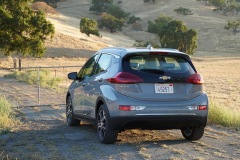
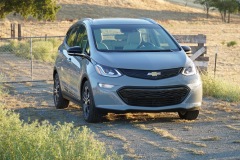
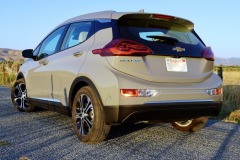
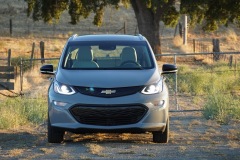
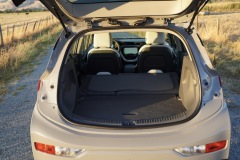
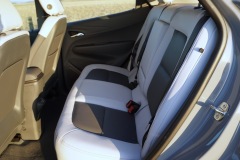
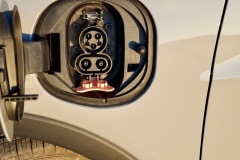
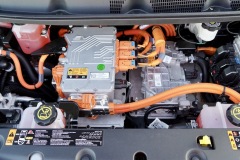
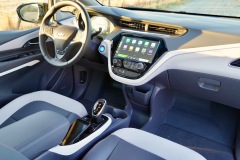
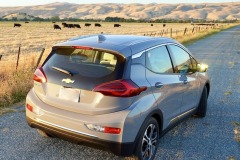
5 thoughts on “Comparison Test: 2018 Volkswagen Atlas V6 SEL Premium 4Motion vs. Atlas 2.0T SE”